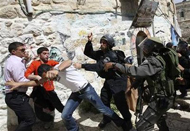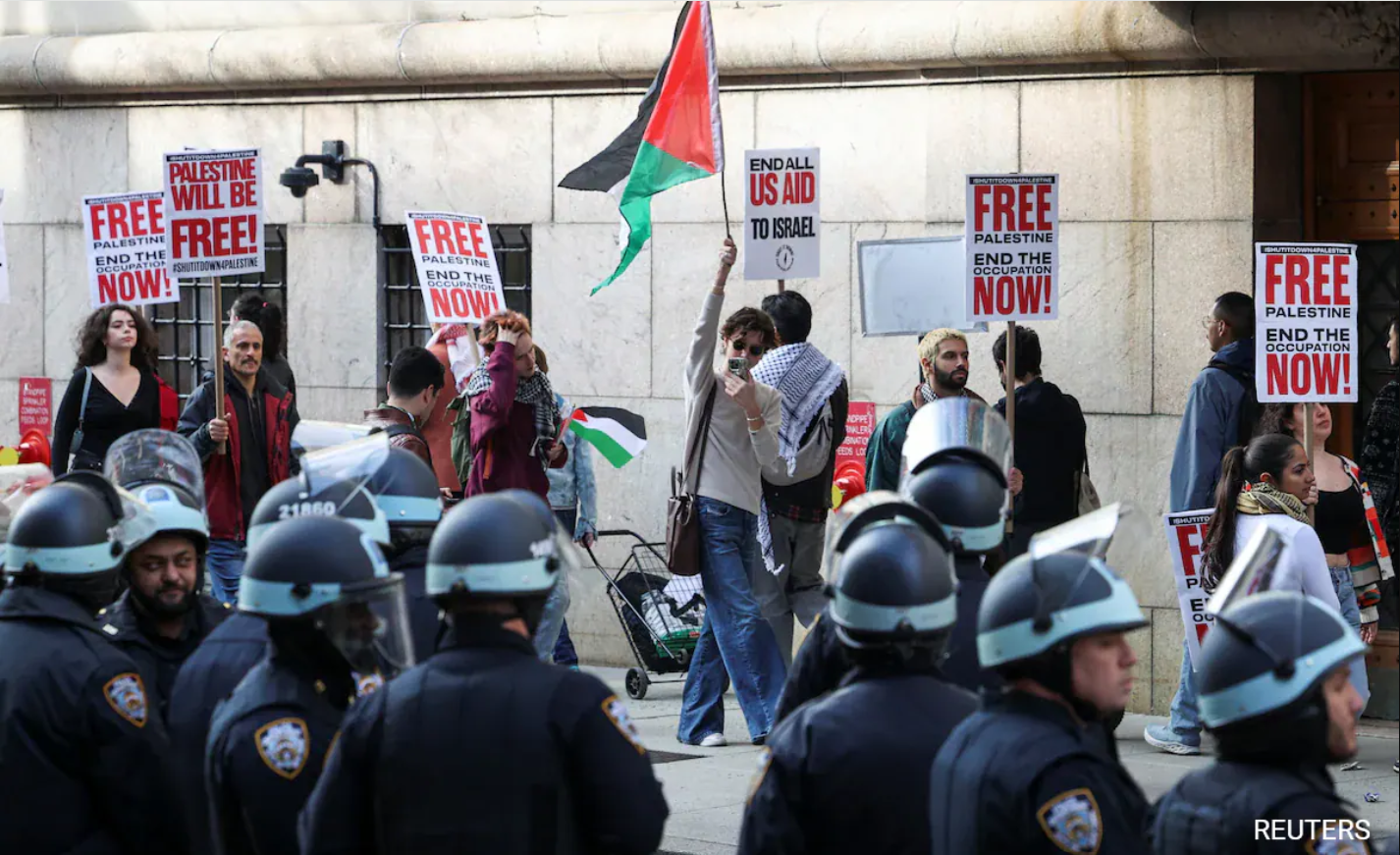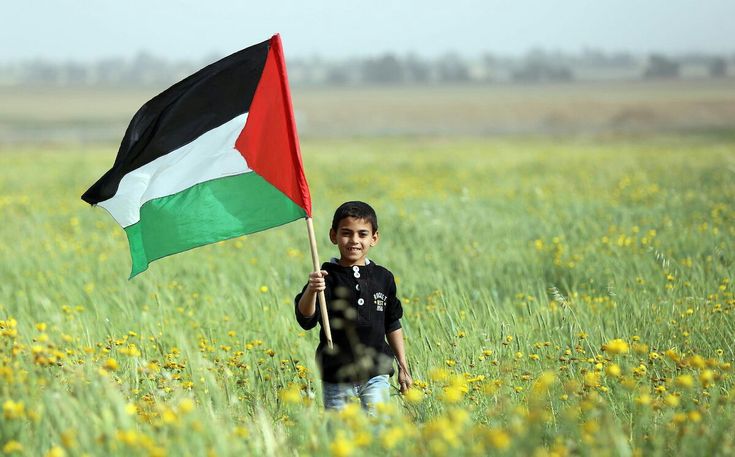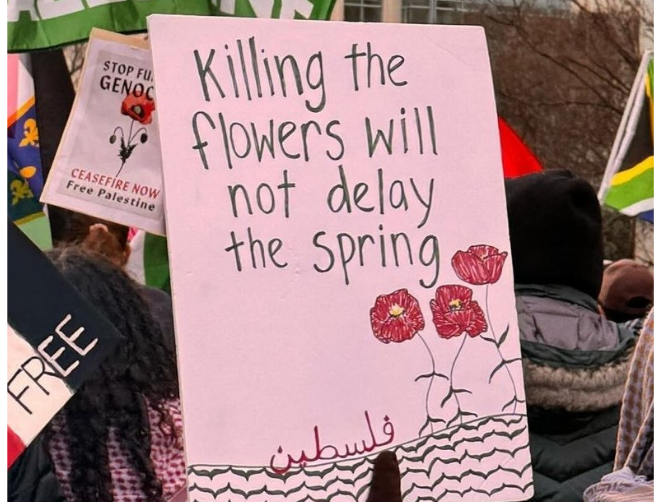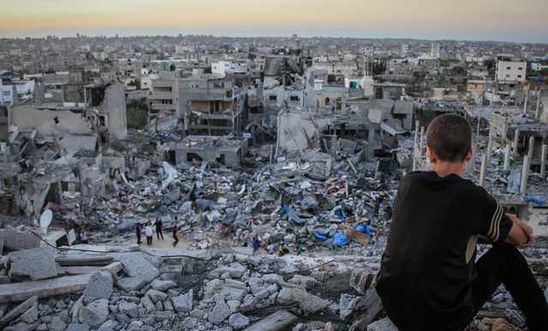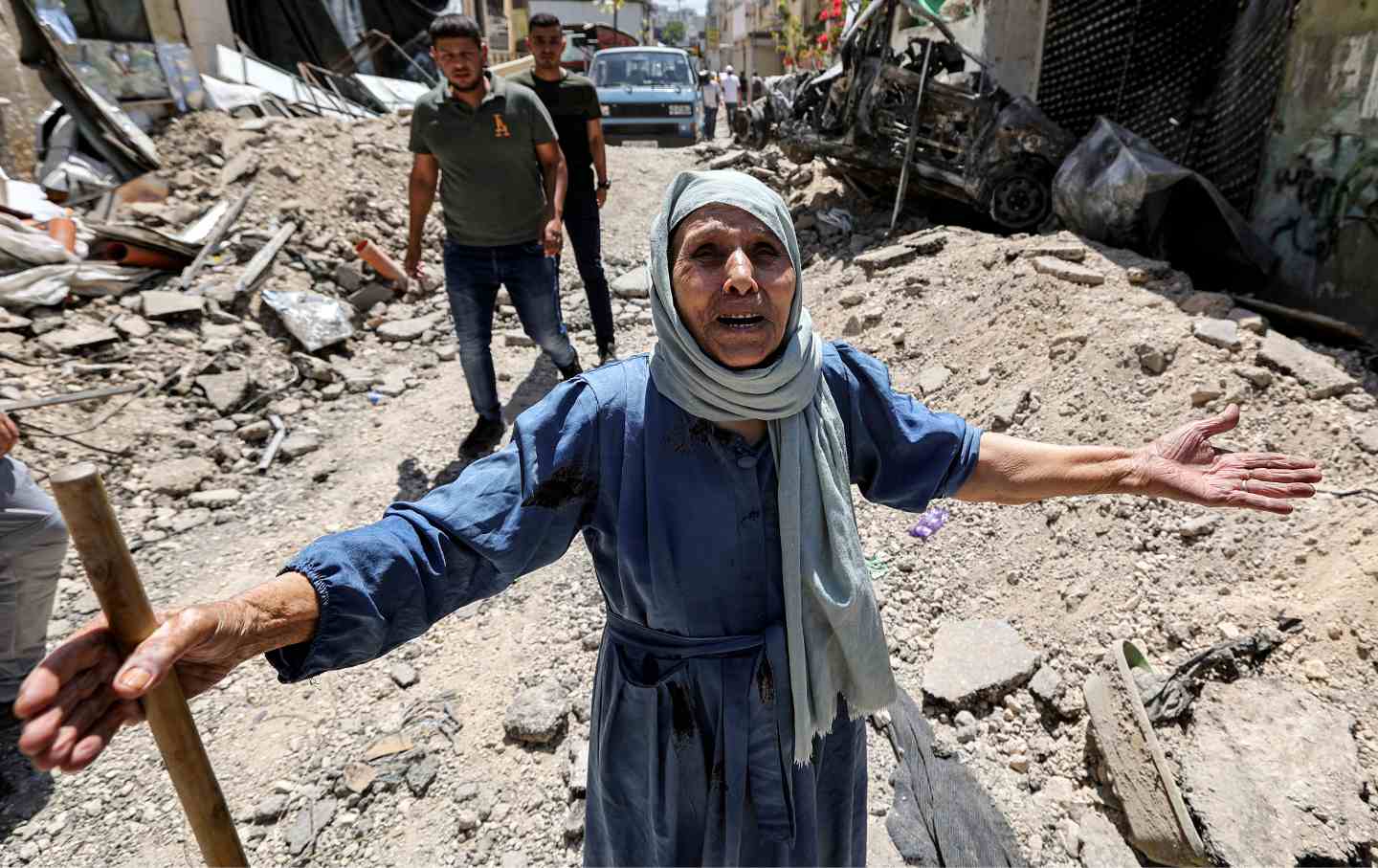"They" in common Palestinian discourse almost always refers to one group: the Israelis. Any mention of "they" usually results in the shaking of heads, disbelief or anger and immediately evokes a sense of empathy with those at the receiving end of "their" actions. The stories usually go something like this: "Today they turned me back at the checkpoint – said my permit had expired," or "They closed off the roads to my house and were checking everyone's IDs". Worst of all are the stories that involve "them" killing someone or demolishing a home. In short, when "they" are the subject of conversation, it usually amounts to nothing good. And so, here is my story. On March 16, "they" took my husband.
By telling this story, I am in no way trying to be melodramatic or highlight my story as anything extraordinary, because in reality, my family's experience pales in comparison to so many other Palestinians in Jerusalem and throughout Palestine. However, if I succeed, I would have at least given a personal account of the brutality, injustice and oppression of Israel's military policies in Jerusalem in particular. That is something I think many will agree is not portrayed enough to the outside world.
The events of Tuesday, March 16 had been in the making for days. Anyone who made their way through the Old City's walled alleyways would have seen the ominous presence of Israel's mighty military machine and felt the thick tension looming over the city like a dark cloud. How else could the 3,000 or so Israeli police, border guards, soldiers and special forces spread throughout the Old City and especially around the Aqsa Mosque be interpreted? Their presence was menacing, to say the least, - heavily armed forces with machine guns, nightsticks and sashes fixed with tear gas canisters slung across chests, Rambo-style. "They" said the reinforcements were in anticipation of riots from Palestinians in response to an ever-increasing Jewish presence in the Old City including the ubiquitous threat of extremist Jews entering Al Aqsa.
True to expectations, the Palestinians would not stand idle and Israel cracked down with a merciless hand. Jerusalem went up in flames on that day and the Old City turned into a scene from a war movie. I was not there that day, having left my neighborhood that directly abuts the main gate to the Aqsa Mosque compound. Predicting that Israel would exercise its iron fist, I wanted to keep my children safe and brought them to Ramallah. Living under Israeli occupation on a daily basis and seeing the ramifications of this occupation have already exposed them to too many things no child should have to see and my husband and I figured that if we could spare them just once, it was better than nothing.
In hindsight, I am so glad we made this decision. Their father, who had slept in late that day had heard the riots, which were going on not 20 meters away, just outside our neighborhood's entrance. Palestinians were pelting Israeli soldiers with stones and trying to keep a large enough presence inside the Aqsa Mosque just in case Israel invaded. My husband had gone out to see what was happening, like so many others. Apparently, when Israel's special forces broke into the neighborhood, ostensibly to look for those ever-dangerous stone-throwers, they did not stop to ask who was doing what. They just pulled men and boys from their homes and from their families and corralled them out of the city and into an army jeep, straight to the Russian Compound detention center. My husband and six others from our neighborhood, including a 14-year old boy were duly arrested and thrown in prison. After they took the first bunch, Israel's "security" forces decided they were not done. According to my neighbors and family, they ordered all the men from our neighborhood out of the house. When no one came out, they proceeded to kick the doors in, mine included, looking for "terrorists". Of course, there was no one in my house but "they" did not care. According to my neighbors, they broke the lock with their guns and searched the house. Then they beat women, threw tear gas into homes and broke windows and doors vowing to arrest any man from our neighborhood.
On the other side of Israel's separation wall, which divides Jerusalem from the West Bank, I had been told the news of my husband's arrest. The next 24 hours are a blur, what with trying to control my own emotions while dealing with my children's anxiety about their father. Furthermore, I could not get home. The Qalandiya checkpoint, the only way back into Jerusalem for me (because of my status as a West Banker with a residency permit in Jerusalem), was up in flames. Palestinian youths were clashing with Israeli soldiers at the checkpoint and "they" had closed the crossing off completely. Anyway, even if I had made it into Jerusalem, I wouldn’t have been able to get home. Israeli forces had cordoned off the neighborhood and were only allowing those with ID cards specifically indicating their home address to cross. Since I do not have a Jerusalem ID yet, I had no proof of my place of residence.
At this point, raged-filled helplessness washed over me. I was powerless before this injustice. Not only had my husband been basically abducted from his own home, but I did not know where he was nor could I get back to a home I knew Israeli soldiers had broken into. For me, that violation alone was upsetting enough. I felt utterly drained. After finally going to my mother's house in a West Bank village, I put my anxious and confused children to bed and tried to allay their fears about their father. My seven-year-old daughter cried herself to sleep worrying about "Baba" and my son closed in on himself like he always does when he cannot properly express his emotions.
The next day, my husband was released since "they" had absolutely nothing to hold him for. But instead of admitting that their policy of arrest and brutalization was discriminatory and arbitrary, the court decided to ban him and six others from entering the Old City of Jerusalem for 15 days. Yes, you heard right. They cannot sleep in their own homes or come near the neighborhood or even inside the city walls for over two weeks.
I have given up trying to find any logical explanation for such oppressive measures except one ever-prevalent truth. This is an occupation and we are the occupied. My husband, our 14-year old neighbor and all the other Palestinians who suffer at the hands of Israel's military machine every day are being punished for one thing and one thing only: because they are Palestinian.
Joharah Baker is a Writer for the Media and Information Department at the Palestinian Initiative for the Promotion of Global Dialogue and Democracy (MIFTAH). She can be contacted at mid@miftah.org.




